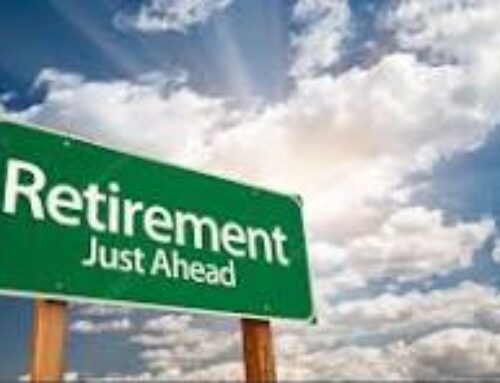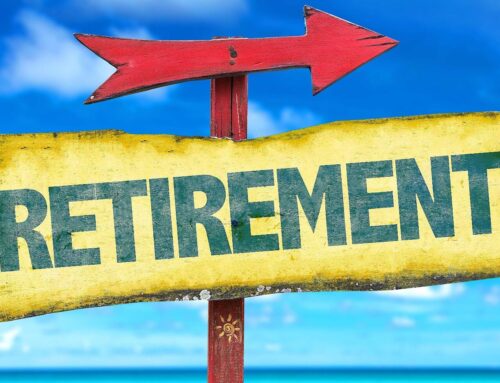Do Women Face Greater Retirement Challenges Than Men?
If so, how can they plan to meet those challenges?
A new study has raised eyebrows about the retirement prospects of women. It comes from the National Institute on Retirement Security, a non-profit, non-partisan research organization based in Washington, D.C. Studying 2012 U.S. Census data, NRIS found that women aged 65 and older had 26% less income than their male peers. Looking at Vanguard’s 2014 fact set on its retirement plans, NRIS learned that the median retirement account balance for women was 34% less than that of men.1
Alarming numbers? Certainly. Two other statistics in the NRIS report are even more troubling. One, a woman 65 or older is 80% more likely to be impoverished than a man of that age. Two, the incidence of poverty is three times as great for a woman as it is for a man by age 75.1,2
Why are women so challenged to retire comfortably? You can cite a number of factors that can potentially impact a woman’s retirement prospects and retirement experience. A woman may spend less time in the workforce during her life than a man due to childrearing and caregiving needs, with a corresponding interruption in both wages and workplace retirement plan participation. A divorce can hugely alter a woman’s finances and financial outlook. As women live longer on average than men, they face slightly greater longevity risk – the risk of eventually outliving retirement savings.
There is also the gender wage gap, narrowing, but still evident. As American Association of University Women research notes, the average female worker earned 79 cents for every dollar a male worker did in 2014 (in 1974, the ratio was 59 cents to every dollar).3
What can women do to respond to these financial challenges? Several steps are worth taking.
Invest early & consistently. Women should realize that, on average, they may need more years of retirement income than men. Social Security will not provide all the money they need, and, in the future, it may not even pay out as much as it does today. Accumulated retirement savings will need to be tapped as an income stream. So saving and investing regularly through IRAs and workplace retirement accounts is vital, the earlier the better. So is getting the employer match, if one is offered. Catch-up contributions after 50 should also be a goal.
Consider Roth IRAs & HSAs. Imagine having a source of tax-free retirement income. Imagine having a healthcare fund that allows tax-free withdrawals. A Roth IRA can potentially provide the former; a Health Savings Account, the latter. An HSA is even funded with pre-tax dollars, as opposed to a Roth IRA, which is funded with after-tax dollars – so an HSA owner can potentially get tax-deductible contributions as well as tax-free growth and tax-free withdrawals.4
IRS rules must be followed to get these tax perks, but they are not hard to abide by. A Roth IRA need be owned for only five tax years before tax-free withdrawals may be taken (the owner does need to be older than age 59½ at that time). Those who make too much money to contribute to a Roth IRA can still convert a traditional IRA to a Roth. HSAs have to be used in conjunction with high-deductible health plans, and HSA savings must be withdrawn to pay for qualified health expenses in order to be tax-exempt. One intriguing HSA detail worth remembering: after attaining age 65 or Medicare eligibility, an HSA owner can withdraw HSA funds for non-medical expenses (these types of withdrawals are characterized as taxable income). That fact has prompted some journalists to label HSAs “backdoor IRAs.”4,5
Work longer in pursuit of greater monthly Social Security benefits. Staying in the workforce even one or two years longer means one or two years less of retirement to fund, and for each year a woman refrains from filing for Social Security after age 62, her monthly Social Security benefit rises by about 8%.6
Social Security also pays the same monthly benefit to men and women at the same age – unlike the typical privately funded income contract, which may pay a woman of a certain age less than her male counterpart as the payments are calculated using gender-based actuarial tables.7
Find a method to fund eldercare. Many women are going to outlive their spouses, perhaps by a decade or longer. Their deaths (and the deaths of their spouses) may not be sudden. While many women may not eventually need months of rehabilitation, in-home care, or hospice care, many other women will.
Today, financially aware women are planning to meet retirement challenges. They are conferring with financial advisors in recognition of those tests – and they are strategizing to take greater control over their financial futures.
Registered Representative, Securities offered through Cambridge Investment Research, Inc., a Broker/Dealer, Member FINRA/SIPC. Investment Advisor Representative, Cambridge Investment Research Advisors, Inc., a Registered Investment Advisor. Cambridge and North Light Financial Services are not affiliated. Cambridge does not offer tax advice. Office of Supervisory Jurisdiction: 46 Accord Park Drive / Norwell, MA 02061 Phone: 781-878-4063
This material was prepared by MarketingPro, Inc., and does not necessarily represent the views of the presenting party, nor their affiliates. This information has been derived from sources believed to be accurate. Please note – investing involves risk, and past performance is no guarantee of future results. The publisher is not engaged in rendering legal, accounting or other professional services. If assistance is needed, the reader is advised to engage the services of a competent professional. This information should not be construed as investment, tax or legal advice and may not be relied on for the purpose of avoiding any Federal tax penalty. This is neither a solicitation nor recommendation to purchase or sell any investment or insurance product or service, and should not be relied upon as such. All indices are unmanaged and are not illustrative of any particular investment.
Citations.
1 – bankrate.com/financing/retirement/retirement-women-should-worry/
2 – blackenterprise.com/small-business/women-age-65-are-becoming-poorest-americans/ [3/18/16]
3 – tinyurl.com/jq5mqhg [6/8/16]
4 – bankrate.com/finance/insurance/health-savings-account-rules-and-regulations.aspx [1/1/16]
5 – nerdwallet.com/blog/investing/know-rules-before-you-dip-into-roth-ira/ [1/29/16]
6 – fool.com/retirement/general/2016/05/29/when-do-most-americans-claim-social-security.aspx [5/29/16]
7 – investopedia.com/articles/retirement/05/071105.asp [6/16/16]





